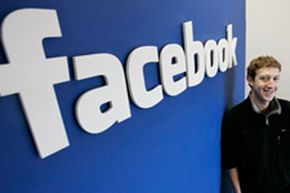The story of Facebook is phenomenal. It all began as little more than an online student directory. But over the years, Facebook evolved into a new way to access the Web. Market research firm Nielsen calculated that collectively, Americans spent more than 53 billion minutes on Facebook in May 2011 [source: CNET]. The amount people can -- and do -- share has grown astronomically since Mark Zuckerberg first unleashed the social platform at Harvard.
The nature of what we share has changed as well. In the early days of Facebook, a person might have shared background information like their home town or favorite movies. But today, people can share links to articles, embed videos or sound files and play games with each other. Today, Facebook is a true applications platform.
Advertisement
In the fall of 2011, Mark Zuckerberg gave a keynote address at a Facebook developers conference called f8. At that event, Zuckerberg revealed that Facebook was partnering with content providers across the Web as part of the Open Graph project. The partnership is just one part of a general transformation in the way Facebook presents information to users.
Part of that transformation is Timeline, a new layout for personal pages. Another is a ticker on the right side of the news feed -- the ticker shows people what their friends are up to on Facebook. Leave a comment on someone's page, and it'll show up on his or her ticker where others may see it -- barring a few privacy settings that can prevent such things.
The Open Graph project allows third-party app developers to tap into these features. Use an app to track your food, and every snack you log could pop up in your personal Timeline. The Open Graph creates a new, deeply integrated approach to sharing activities.
Among those activities are watching television programs and movies. Facebook's partners include companies and sites like Netflix, Hulu and the Internet Movie Database. Potentially, you'll be able to watch shows and movies directly through Facebook, share your experience with others and engage in conversations about your favorite content. And that may be just the beginning.
Advertisement


